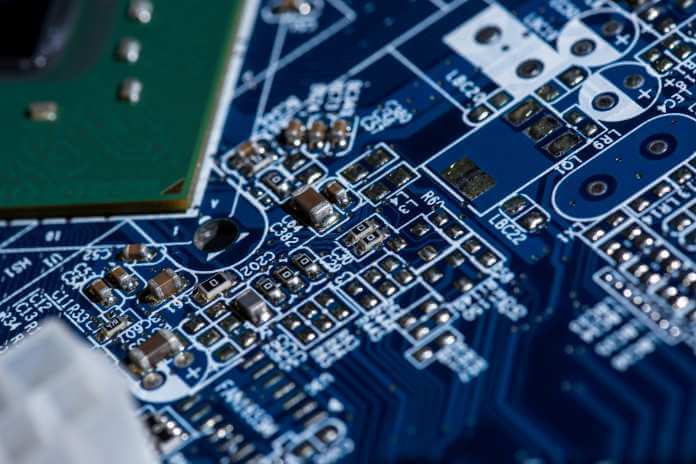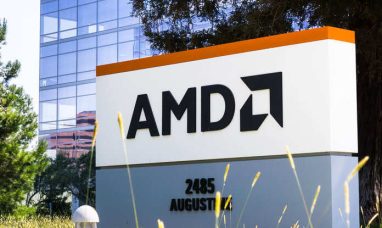Shares of Taiwan Semiconductor Manufacturing Co. saw the largest increase in value in the past three months after the firm lowered its capital investment estimate for 2022 by about 10% and posted results that were higher than expected.
TSMC (TSM stock) has stated that it anticipates spending around $36 billion on capital equipment in 2022, which is a decrease from the prior amount of at least $40 billion. The company, which reported a net income of NT$280.9 billion ($8.8 billion) for the third quarter that was better than estimated, is projecting revenue of $19.9 billion to $20.7 billion for the December quarter, although this assumes certain US dollar expectations at a time when Asian currencies have weakened.
TSM Stock Performance
The overall performance of Asia’s semiconductor industry improved after a comeback in American peers following the release of high inflation figures in the United States. The Philadelphia Semiconductor Index finished the day with a gain of 2.9%, while the Bloomberg Asia Pacific Semiconductors Index reached a high point of 3.6% growth. On Friday, the share price of TSMC increased by 4.3% in Taipei.
After TSMC (NYSE:TSM) reported its earnings, analysts from JPMorgan stated that “the moment to start purchasing TSMC stock for absolute upside has now come.” Earlier in the week, shares were trading at all-time lows, which drove the company’s market valuation down to around $320 billion from more than $550 billion in January.
As a result of Washington’s sweeping limitations on doing business with China, the global semiconductor sector is currently experiencing a series of shock waves, which is causing TSMC and its competitors to struggle. While Applied Materials Inc., a prominent maker of chip-making equipment, has reduced its prediction for the fourth quarter, Intel Corporation is rumored to be getting ready to lay off thousands of employees. On Thursday, shares of a European manufacturer of gear known as ASML Holding NV, TSMC being the company’s primary client, dropped by as much as 3%.
The actions that were announced the previous week are the most extreme ones that the Biden administration has taken too far in its effort to prevent China from gaining technology capabilities that it views as a threat. The efforts, which have infuriated Beijing, threaten to upset a global economy that is already coping with the possibility of a worldwide recession, skyrocketing inflation, and ongoing supply bottlenecks.
According to Charles Shum, an analyst with Bloomberg Intelligence, the reduction in the company’s full-year capital investment forecast by 10% means that the market for smartphones and PC chips will continue to be sluggish.
From SK Hynix Inc. to Samsung Electronics Co., all of these companies were able to get narrow exemptions from the chip curbs from the US government. Executives have stated that they have won a license from the United States to continue operating and building out their 16-nanometer and 28-nanometer lines at Nanjing in China.
The funds make it possible for Asia’s three major chipmakers to continue operating their factories and conducting business in the market for semiconductors that are the largest in the world. This may be accomplished, for example, by purchasing, importing, and upgrading American equipment. They may also be granted permission to expand existing facilities that are covered by the licenses. In the case of TSMC (NYSE:TSM), this would include more mature nodes that lag behind state-of-the-art technology by many generational leaps. It is not clear, however, if American workers will be allowed to work on the production lines in China or if American companies will be permitted to advance up the technological ladder.
TSMC (NYSE:TSM) to the Rest of the World: We Are Sorry to Inform You That… Tim Culpan
The regulations implemented by the Biden administration make it more difficult for businesses that utilize US technology to sell their wares in China. They include restrictions on the export of certain types of chips used in artificial intelligence and supercomputing, as well as stricter rules regarding the sale of semiconductor equipment to any company in China. These measures were taken in response to China’s increasingly dominant position in the global semiconductor industry.
According to a report published this week by Fubon Research analysts led by Sherman Shang, the limitations make it more difficult for chipmakers to shift their stockpiles and have had a more severe impact on TSMC than earlier moves taken by the US. According to what they claimed, the limitations would likely result in a restriction of between 5 and 8 percent of TSMC’s overall income. According to estimates provided by Bloomberg Intelligence, TSMC would lose more than 10% of its yearly revenue as a result of the limitations.
On a conference call with investors and analysts, Chief Executive Officer C. C. Wei stated that it is “too early to establish an exact estimate” but that it is anticipated that the inventory correction would have its greatest impact somewhere in the first half of 2023. According to him, the effects of the restrictions imposed by the United States would be bearable.
Despite this, Taiwan’s largest corporation is relying on its enormous scale and the cutting-edge technology it has developed to get it through the toughest times it has faced in recent memory. TSMC, which has its headquarters in Hsinchu, Taiwan, is the most important contract chipmaker in the world. It manufactures chips for companies such as Qualcomm Inc., Apple Inc., and Nvidia Corp., all of which sell a considerable amount of their goods into the Chinese market.
Thursday was the day when management confirmed their long-term projections for revenue and said that 2023 would be a year of expansion. TSMC has also committed to continuing its global expansion in response to market demands.
“TSMC’s guidance of at least 43% year-over-year sales growth and 59.5% gross margin is above consensus estimates and indicates very mild immediate impact from the new US restrictions,” said Shum. “TSMC’s guidance of at least 43% year-over-year sales growth and 59.5% gross margin is above consensus estimates.”
Even before the disruption that was caused by Biden’s regulations, the prognosis for the electronic sector had already begun to seem bleak.
The amount of unsold inventory among PC suppliers has increased as a result of macroeconomic shocks, which have decreased consumer demand and company expenditure. According to data from IDC, shipments of desktop and laptop computers fell by 15% during the third quarter. Chip firms such as Advanced Micro Devices Inc. have stated that they were taken aback by the speed and severity of the decline in demand for their products. Memory manufacturers Micron Technology Inc. and Kioxia Holdings Corp. have both declared that they would reduce their production by as much as 30 percent in an effort to maintain pricing stability.
TSMC may not be able to rely on Apple, its primary customer, to maintain demand for its goods in the foreseeable future. Apple’s expansion has been beneficial to the growth of the Taiwanese manufacturer for many years.
The fact that the California business has released new types of semiconductors to better the performance of its gadgets is counterbalanced by the fact that it has lately backed off plans to increase manufacturing of its new iPhones, which raises more worries about the underlying need for electronics.
Featured Image: DepositPhotos @ EdZbarzhyvetsky














